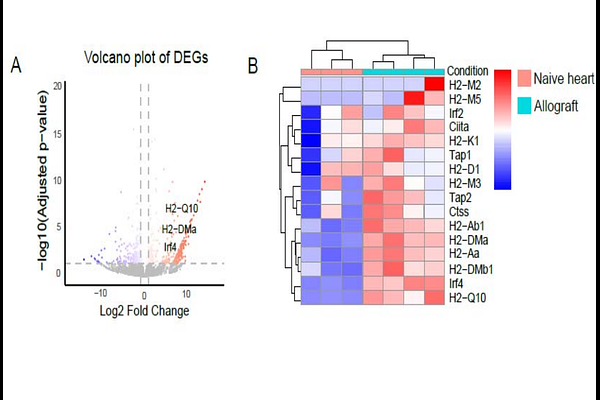Group 2 Innate lymphoid cells promote allograft survival by constraining and inducing anergy in alloreactive CD4+ T cells

Group 2 Innate lymphoid cells promote allograft survival by constraining and inducing anergy in alloreactive CD4+ T cells
Ge, J.; Pan, W.; Xu, Z.; Boccia, T.; Markmann, J. F.; Zanoni, I.; Cuenca, A. G.
AbstractAlthough solid organ transplant outcomes have dramatically improved over the last several decades, incomplete understanding of the immune interface between the donor organ and the recipient immune system has impaired our ability to induce immune tolerance in most transplant recipients. Since group 2 innate lymphoid cells (ILC2s) reside in all transplanted solid organs, participate in wound healing, and coordinate other immunoregulatory cell populations, we investigated their role in the alloimmune response. Using a mouse heterotopic cardiac transplant model, we show that recipient ILC2s replace donor ILC2s, upregulate MHCII without expressing costimulatory molecules. In addition, recipient derived ILC2s process and present alloantigen, inducing CD4+ T cell anergy via Caspase-3 pathway. When recipient-derived ILC2s are not present, we observed a significant increase in infiltrating donor reactive CD4+ T cells and worsened allograft survival. Additionally, expansion of ILC2s in vivo through IL33 administration prolonged the survival of murine heart allografts. Overall, these data highlight a critical and novel immunoregulatory role of host-derived ILC2s in solid organ transplant, where they induce anergy in alloreactive CD4+ T cells, promoting the induction of alloimmune tolerance.